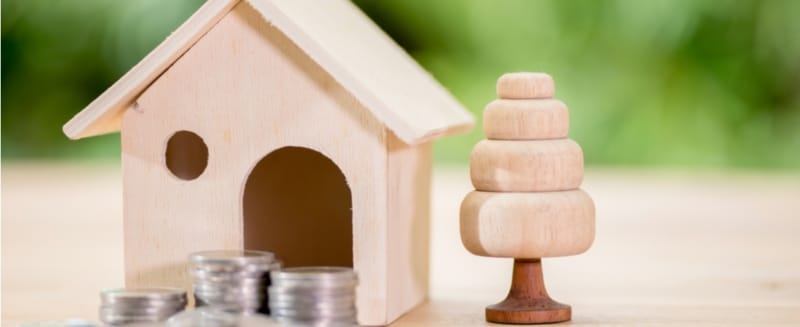Should I refinance for 15 or 30 years? When refinancing a rental property, think about your long term and short term goals.
Q: I am interested in refinancing a rental property that qualifies for the Home Affordable Refinance Program (HARP). I owe $91,000 on the first mortgage and I have a second mortgage at $19,000. The first mortgage is at 6.75 percent and I’m paying $630 per month, without real estate taxes and insurance. And I’m paying $180 on the second mortgage. Both of these are 30-year loans.
The bank has given me the following good faith estimate: a 15-year fixed rate mortgage at 3.75 percent. My payment will be $816 with real estate taxes and insurance included, which is actually a savings for me. They won’t roll in the second mortgage, so I’m still stuck paying the $178 per month.
The rental income is $1,050 per month. It covers the mortgage and if I work to pay off the second loan, I could probably have the first mortgage paid off in even less than 15 years. The bank also gave me a scenario for a 30-year mortgage, but paying off the loan faster makes me happy inside!
What do you think? Is this a good deal? I value your opinion.
A: There are two schools of thought when it comes to paying down a rental property.
First, some investors want to pay off rental properties as quickly as possible because after the property is paid off they’ll have additional cash flow, which they can use as income or to make repairs on the property or to purchase additional properties.
But if you want more free cash each month, or if you need additional flexibility with payments, or if you want to have cash on hand to buy other properties, then choosing a longer-term mortgage might be the smarter move. Yes, you’re on the hook for more years, but at the same time, you’re paying less each month, which allows you to do something else with the cash now, instead of waiting until the loan is paid off. Also, if you’re thinking you will sell the property before the mortgage is paid off, taking the longer-term mortgage may make more sense.
The question is which scenario is closer to your true short- and long-term goals for the property and your personal finances?
With the new 15-year mortgage scenario, your income from the property will just pay the mortgages, taxes and insurance. That leaves nothing left over for the regular maintenance and upkeep on the property. That cash will have to come directly out of your pocket.
Every time the tenant turns over, you’ll have to at least repaint some or all of the property, shampoo the carpets, and repair something else. How much will that cost and how will you fund that for the next fifteen years? In that period of time, you’ll have some expensive repairs and replacements as well, including possibly having to replace the roof, appliances and mechanical systems.
While I’m sure you’ll get more money as rents go up, we’re guessing that the costs to repair these items will rise as well. So you’re doing a heck of a lot of work and spending some (or a lot) of cash out of pocket, all to get the property paid off in 15 years. At that point in time, you’ll have maybe $1,500 per month in rent (or $18,000 per year, which seems reasonable given inflation).
Sounds good but you’ll still have real estate taxes and insurance to pay, plus repairs and maintenance and you’ll have your cash tied up in the equity of the property. There should be some free cash flow after that, but you will also pay taxes on that income, so you may pocket less than you imagine.
So let’s get back to the question at hand: Should you refinance the property to a 15-year loan or a 30-year mortgage? Clearly, you do something because interest rates are at historic lows. And, HARP is a blessing for folks like you because the property is underwater and without this program, you wouldn’t be able to refinance at all. So far so good.
We like the idea that you’ll be paying down the loan and building in equity faster. At some point in time, when the property is paid off, you’ll have the value of the property (whatever it is at that point in time, hopefully a lot higher than it is now) and you will also have income, the issue for you is whether you want or need to have more cash now for other investments or you’d rather have the cash invested in the property
In the end, a lot of this depends on how long you want to hold onto the property. If the plan is to keep it until you leave it to your heirs, then consider getting a 30-year loan to maximize your free cash each year and continue to write off income against expenses.
If you want to sell this property the moment you’ve got equity (so you’re not taking a loss), and you’re not worried about having enough free cash to fix it up and maintain it over the next 15 years, or if you just want to get it paid off as quickly as possible because you’ll sleep better at night (that’s the “happy” you referred to in your email), then go with the shorter-term loan. If you want to have your cake and eat it, too, then do a 30-year loan but every year you can, throw extra cash at the mortgages (starting with the home equity loan) to get it paid down as quickly as possible.
The bottom line is that there’s no one right way to do this. The right way for you will depend on how this investment fits into your larger investment portfolio and your future financial plans.







Leave A Comment